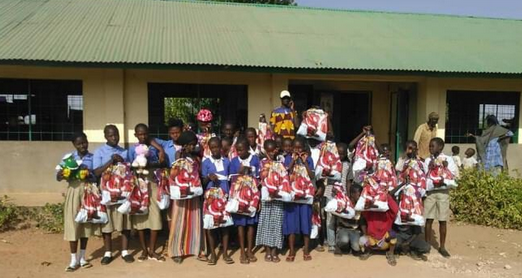
|
|
A simple story 1My-oh-my! Chocolates of various shapes and sizes, mocha cake lovingly baked by my daughter-in-law, four bottles of wine! What more can an old fogey want for his 93rd birthday? My daughter uncorked her gift for us to savor at a little wine-and-cheese where we duly sat two meters or so apart. A beautiful red named "Tailwind," for this old fogey a not altogether inappropriate label. Slightly exaggerated maybe or so I like to believe. One down, three to go. 3 One birthday email made me wonder whether my recent pieces are a bit—what shall I say?—overdone. "I guess it's time to update fleabyte to do justice to your advancing age." Maybe any philosophical profoundnes should not exceed two cents worth. My wife certainly would say amen to that. "Do you expect ordinary people to read this?" No, I don't expect that at all. But then ... still .... "Nowt so queer as folk" the Scottish have it. Catharina, my sister-in-law, often heard that from her late-husband, Tom Mellon. 4 She sent me an email in which she wrote that she read and reread my last piece ("Voyage to a cosmic perspective") and that it made her think. I don't remember why, but in reply I brought up her son Ralph who had recently died of cancer and all his life had suffered from bipolar disorder. He did move around from time to time, mostly to see friends. On a short holiday in The Gambia* he befriended a waiter at a hotel where he stayed and visited him at his compound in Serakunda, not far from the capital. It is a dwelling with some outbuildings and a yard, all very ramshackle and poor. He lived there with his extended family—grandparents, married children, uncles, aunts, and so on. The income of someone with a job provided for all. When jobs dry up, as happened during Ebola crisis, they almost starve. The 2014–2016 Ebola outbreak in West Africa was the largest since the virus was first discovered in 1976. 6 Also living there was a twelve-year-old boy who grew up in a village a two-hours drive inland. The boy might have been there to get a primary school education which is provided free, wherever available that is. Secondary education, however, must be paid for which pevented him from continuing his schooling. Ralph decided to go where the boy came from and was shocked by the poverty and primitive standard of living he observed. 7 Back home in England, he diverted money intended for paving his driveway to do something really worthwhile instead. Applying his organizational and persuasive skills, he managed to build a nursery and a primary school. He set up a charity that financed the drilling of a borehole with an electrical facility to power a pump for clean water. Fugi Drammeh, the waiter, helped organizing and overseeing the building of the school. 8 During the legal proceedings of acquiring land for the school, Ralph was asked the school's name. Briefly taken aback, he decided there and then to name it after his mother without any inkling how well this went over with the village elders, but he soon learned that grandmothers and mothers are very valued and important figures in African society, hence he created tremendous goodwill. The wife of a senior elder gave Ralphh a neckace for his mother. In return, Catharina gave Ralph a necklace from England to give to her. What remarkable gestures from two women who had never met. 9 Catharina told me that some of the pupils walk miles to get to the school, without shoes, some wearing flip-flops.  The Catharina Mellon School, founded in 2014 by Ralph and Fugi on land provided by a village in Bondali. Catharina herself insisted that students are evenly split between boys and girls. 11 From the school's website: After his last visit to The Gambia, Ralph suffered from a kidney disease caused by dehydration contracted there. Once recovered, Ebola closed down the Gambian tourist industry. Then Tom, Catharina's husband, died and in 2018 Ralph was diagnosed with cancer. Working on his will, Ralph bequeathed bursaries to allow some outstanding students to attend university. In the meantime, a caring and well-connected German lady, Daniela Filthaut, has taken over the project's lead role, arranging for financing, allowing more students to attend, adding a kitchen for student meals, repairing the facilities for clean water, taking children for a long bus ride to see the ocean. Covid-19 prevented family members of Ralph to visit the site and brought about havoc in running the school and stocking up on rice. 13 The driveway is yet to be paved. 14
Footnotes The Gambia is the smallest African country with a population of about two million. A map is found here * fn1 |
--
| top of page |
|